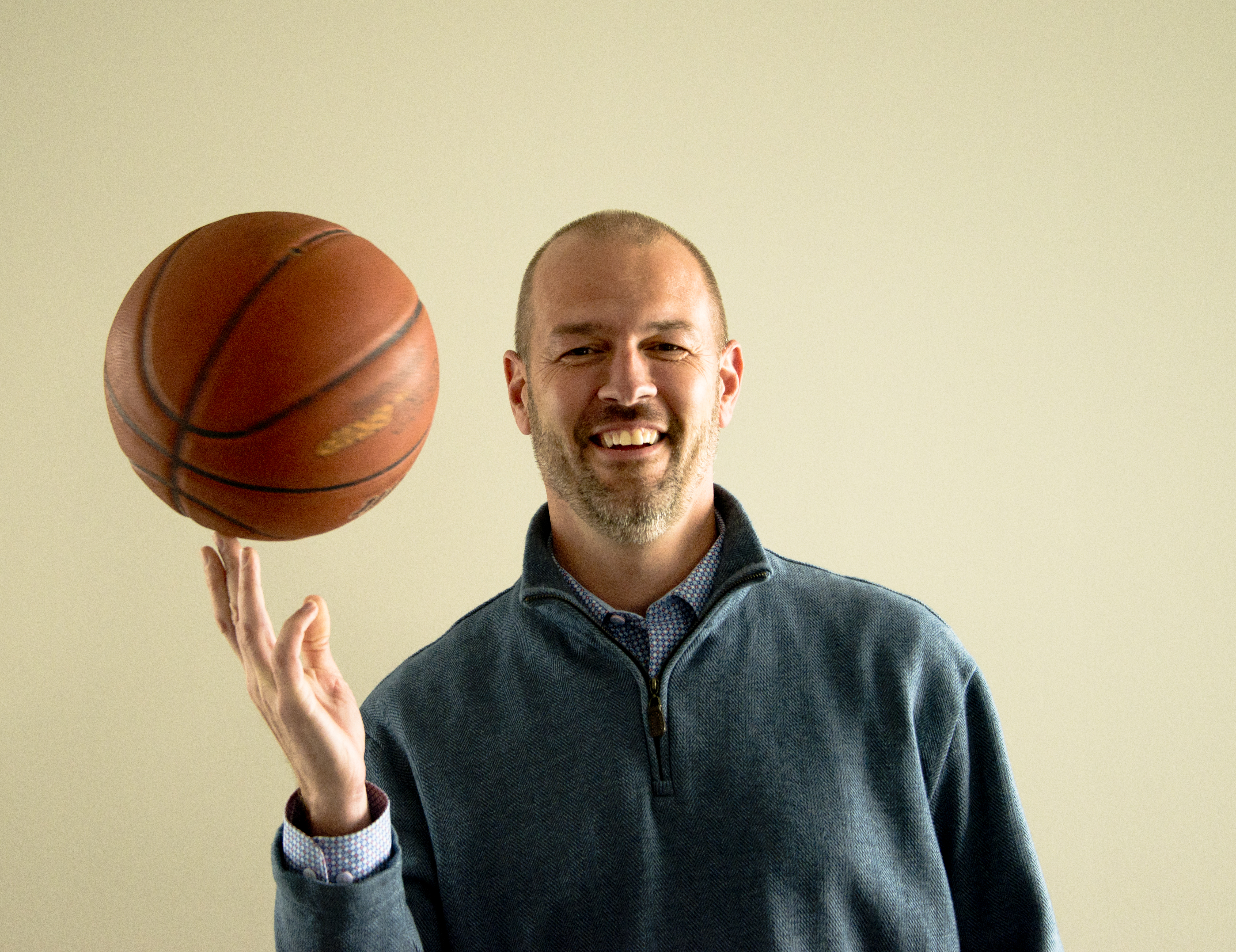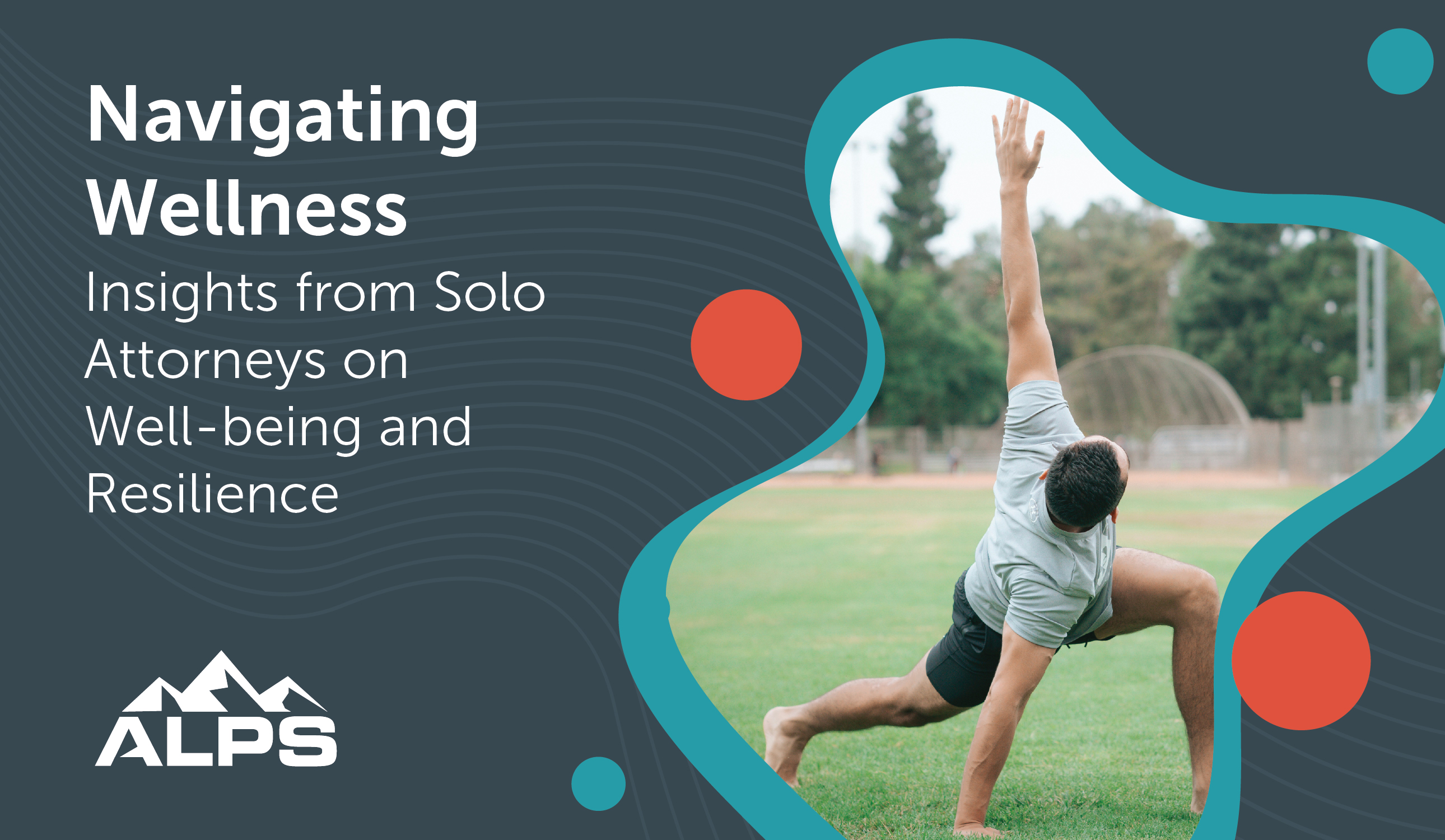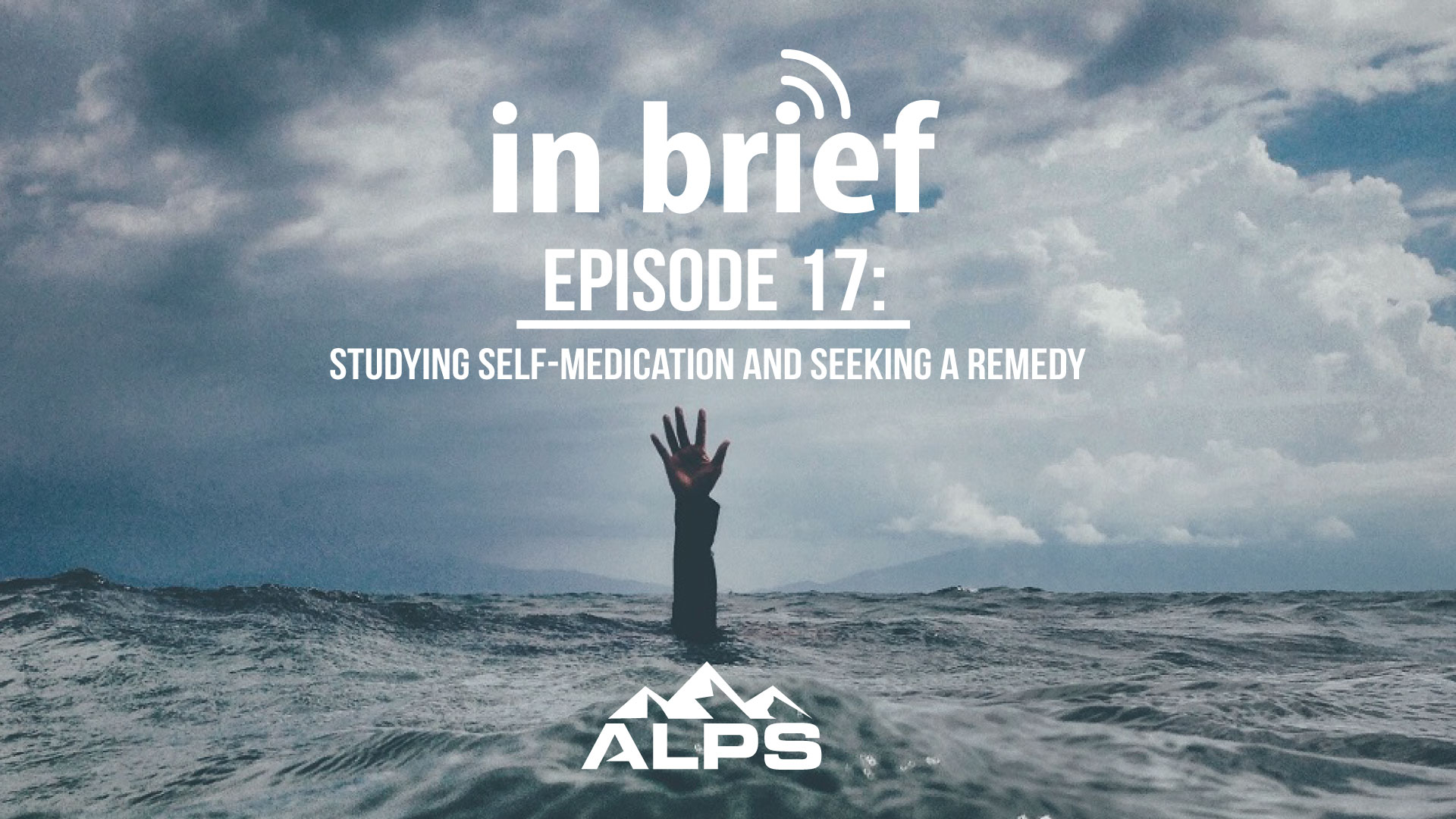14 min read
ALPS In Brief Podcast - Episode 17: Studying Self-Medication and Seeking a Remedy
Patrick R. Krill, JD, LLM shifted from the practice of law to addiction counseling at the Hazelden Betty Ford Foundation. In partnership with the...
2 min read
 Chris Newbold, Chief Operating Officer
:
Posted on May 24, 2025
Chris Newbold, Chief Operating Officer
:
Posted on May 24, 2025

The topic of attorney well-being has garnered deserved attention, conversation, research, and action in legal circles since the release of the 2017 landmark report, The Path to Well-Being in Law: Practical Recommendations for Positive Change by the National Task Force on Lawyer Well-Being. Yet despite 49% of lawyers in private practice being solo practitioners, relatively little research or attention has focused specifically on America's solo community.
As the nation's preeminent malpractice insurer of solo practitioners, ALPS cares deeply about solo practitioners and embarked on a survey of nearly 300 solo policyholders to establish benchmark data to assess the nexus between solos and their respective professional satisfaction.
The results may surprise you — even bring a ray of hope.
In an era in which most survey data involving attorney well-being highlights notably high levels of stress, depression, substance abuse, anxiety and suicidal ideations, our findings uncovered an impressive 74% of solo practitioners either satisfied or very satisfied in their current professional life. In fact, only 9% were either dissatisfied or very dissatisfied with life as a solo attorney.
Why? At their core, 66% of solo practitioners note the most valuable benefit of operating as a solo is the flexible work/life balance it affords, easily outpacing other considerations. Emerging insights and anecdotal evidence from the ALPS survey paint a compelling picture of a professional journey as a solo, one that is closely aligned with personal fulfillment and enjoyment.
Findings revealed solo practitioners reported high levels of happiness and professional satisfaction. Unlike counterparts in larger firms, solo lawyers cite autonomy over their schedules, control over the types of matters they accept, and the ability to build a practice aligned with their personal values as key drivers of contentment. While challenges such as administrative burdens, burnout, and income variability remain, the overarching sentiment was clear: the flexibility inherent in solo practice enables a rewarding and personally meaningful career.
What do these findings mean for the future of legal as changes emerge in law firm dynamics and demographics? In the aftermath of the COVID-19 pandemic, the legal profession experienced a notable shift, with more lawyers than ever reconsidering traditional career paths historically centered around Big Law in favor of careers in solo practice, in-house counsel, government attorney positions, or even JD+ opportunities to leverage law degrees in pursuit of careers in business.
The pandemic acted as a catalyst, prompting many to re-evaluate their professional priorities and seek greater autonomy, flexibility, and work-life balance — even at the expense of higher earnings. Emerging data underscores this trend: lawyers are demonstrating unprecedented levels of mobility, with lateral moves, career pivots, and departures from established firms or even the departure from law itself occurring at markedly higher rates.
The growing transiency within legal also reflects a broader cultural shift, as practitioners increasingly are prone to prioritize personal well-being and professional alignment over the perceived security of conventional firm structures. And for those willing to embark on that shift, survey data reflects greater personal and professional satisfaction in their work as attorneys.
Download and read the full 2025 Solo Attorney Well-Being Trends Report.

14 min read
Patrick R. Krill, JD, LLM shifted from the practice of law to addiction counseling at the Hazelden Betty Ford Foundation. In partnership with the...
-2-1.png)
Starting your solo firm means building good habits from day one and that begins with your intake process. In this episode of New Solo: First Flight,...

In Episode 2 of our thought leadership podcast series, the Deep Think, ALPS COO and long-time attorney well-being advocate Chris Newbold sits down...